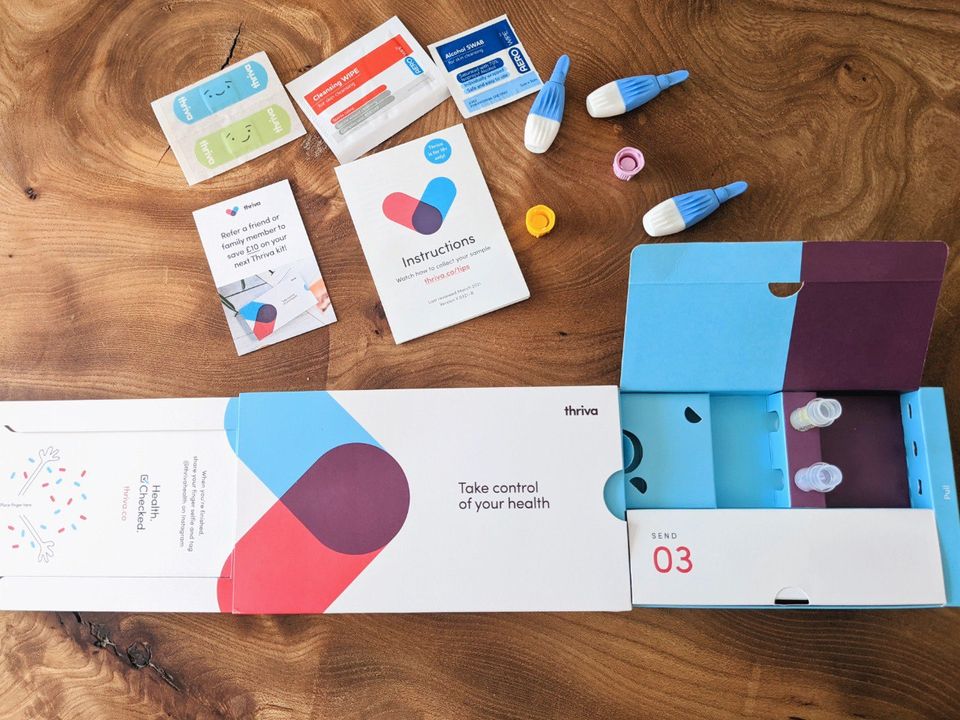Being healthy is one of the most important things in life. It's really hard to do much if you're ill. I think the earlier you discover a disease the more chances you have. Also if you can prevent it from happening in the first place, that would be the best.
Chance plays a massive role of course, you can't easily predict the future. However I think you can still take some actions and significantly reduce risks.
A few years ago I started thinking what I can do about it:
How can I start small and build a system that would allow me to prevent diseases or discover them early on?
So in this article I wanted to share what I managed to try.
Important: I'm not a doctor. This article is not a substitute for any medical help. Please seek a professional healthcare provider if you have any issues.
Engineering perspective
I'll start with something I understand more or less well. Let's assume you're a Software Engineer at Google. You're working on a large mature product like YouTube (we will compare it with our body later). And let's say you need to implement and deploy a new feature, e.g. a new algorithm for video compression (in case of our body it could be starting a new type of diet, or new lifestyle, etc).
First of all, people at Google already came up with a comprehensive set of metrics to monitor the health of YouTube. There're a lot of Site Reliability Engineers (similar to our urgent care doctors) located all over the planet (to be in different timezones) keeping an eye on Google services, and taking immediate action when some metric is off.
When you're deploying a new feature, you usually supposed to:
- Write a design doc where you describe how this feature is going to work.
- This doc should also have a detailed rollout plan.
- We establish key metrics in advance, and then think through how these metrics are going to change during the rollout.
- We think in advance what could go wrong, and come up with an action plan for every scenario (see what would be the business impact, etc).
- Then we implement monitoring solutions for these metrics (if we don't have them already) and follow the plan.
If something didn't go as expected, we write postmortems where we explain the problems and try to come up with solutions to avoid these problems in the future.
Basically there's a whole engineering culture and best practices on how to do these things well. If interested you can read more in the SRE book (free here) and the SWE book.
So when people tell me something like:
- "You don't need to go to doctor unless you have a pain or feeling ill".
- When I tried to do blood work more often than every half a year when my results were OK (the nurse told me this is an obsession, and that I shouldn't do it more often).
- "I'm going to try this new radical diet, try these new medications and just see how it goes".
These statements kind of shock me deeply! Of course you're not a YouTube, you don't have that many resources. But still, how about at least establishing some simple metrics first, before doing a rollout?
Monitoring is a key
Another problem with our healthcare system is that it's mainly built around mitigation and not monitoring/prevention.
E.g. when something bad happens that you end up at a hospital, doctors collect your biomarkers (e.g. blood work), and then they follow a playbook mitigating the problem. However they often don't have your baseline biomarkers, they don't know how things evolved with time. They just have a snapshot of your data at one moment in time, they have to act from that to patch the problem.
From the engineering perspective, having a lot of continuous data (instead of just the most recent snapshot) would be incredibly important, you can at least understand the problem much better.
Imagine nobody is monitoring YouTube's health, and engineers are only trying to resolve issues when the users start complaining that it doesn't work. That sounds crazy! But we do that with our own health.
So, I think if collecting the data doesn't cost too much (say an equivalent of three extra dinners a month), one should definitely do that!
Taking action
A lot of people in the world die from cancer. This is a massive problem! I think almost everyone knows the earlier it's discovered, the more chances to combat it. Everyone knows there are various cancer screening techniques out there (they might not be super efficient in certain cases, and also quite expensive, but they exist).
So, what deeply shocks me about myself, I kind of consider myself not the most stupid person in the world, I have money and time, but at the same time I'm doing almost nothing to do any cancer screening. How is this not a top of my priorities list?!
I think it's super important to figure out things like that as early as possible. Share your learnings with others. Raise awareness. Donate to cancer research, etc. Same with other diseases.
What to monitor?
So here we come to one of the biggest questions:
What data should I collect first? What are the biggest risks for me?
I don't know all the answers. Not sure who does, but I think the most important thing is not to get stuck in the analysis-paralysis mode. You should start somewhere, establish routine, learn from that, iterate:
- Looking into your existing diseases and discussing them with your doctor is important (maybe consider a second opinion, it wouldn't hurt).
- Looking into the statistics for your age, demography, etc.
- Looking what you're predisposed to (e.g. I did the 23andMe genetic test, I know a few diseases I'm predisposed to, I learned about them, and keeping an eye). Super grateful to know about these things in advance.
- Educating yourself, listening to podcasts, reading books, etc.
In terms of getting a holistic picture, I really like Peter Attia's (wiki) work. I love his podcast The Drive, where he brings fascinating people and gets really in-depth into the topic. E.g. if your biomarkers are off, you can find some episodes with top-tier researchers/clinicians, discussing them, so you can understand it better.
A great starting point would be to listen to his Reverse engineered approach to human longevity lecture.
I also love listening to Andrew Huberman (wiki) podcast, he also gets into a lot of details and brings interesting people (discovered him through Lex Fridman).
In January I've read Why Zebras Don't Get Ulcers by Robert Sapolsky - this is a fascinating guide into the world of endocrinology - I would never thought I will be interested in that - thanks Valerie Stark for recommending it. Robert has a lot of amazing books about biology.
UPD (20 Oct 2022): general health check-ups (in absence of clear symptoms) might not significantly affect the lifespan according to huge Cochrane meta-analysis (thanks Yaroslav Kainov for sharing). So, I guess it depends what you monitor, and also importantly what action you're taking afterwards.
Blood work
Note: I'm not associated with any of the listed companies below (no conflict of interest). This is simply my experience with them.
Just to kick this off, 3 years ago I started visiting a private GP in London (Roodlane Medical) to collect my blood work there. At some point later I discovered alternative home test kits: LetsGetChecked, Medichecks and Thriva.
In March 2020 I switched to Thriva. The idea is you get a home kit every couple of months, you collect your blood sample and then send it back to the lab. They use the same labs as NHS GPs in the UK.
There's a bit of a difference between taking a blood sample from a finger and a vein, but for most of the standard biomarkers it doesn't really matter. Also you can now visit them at certain places, where professional nurses can collect your sample.
Here's how the kit looks like:
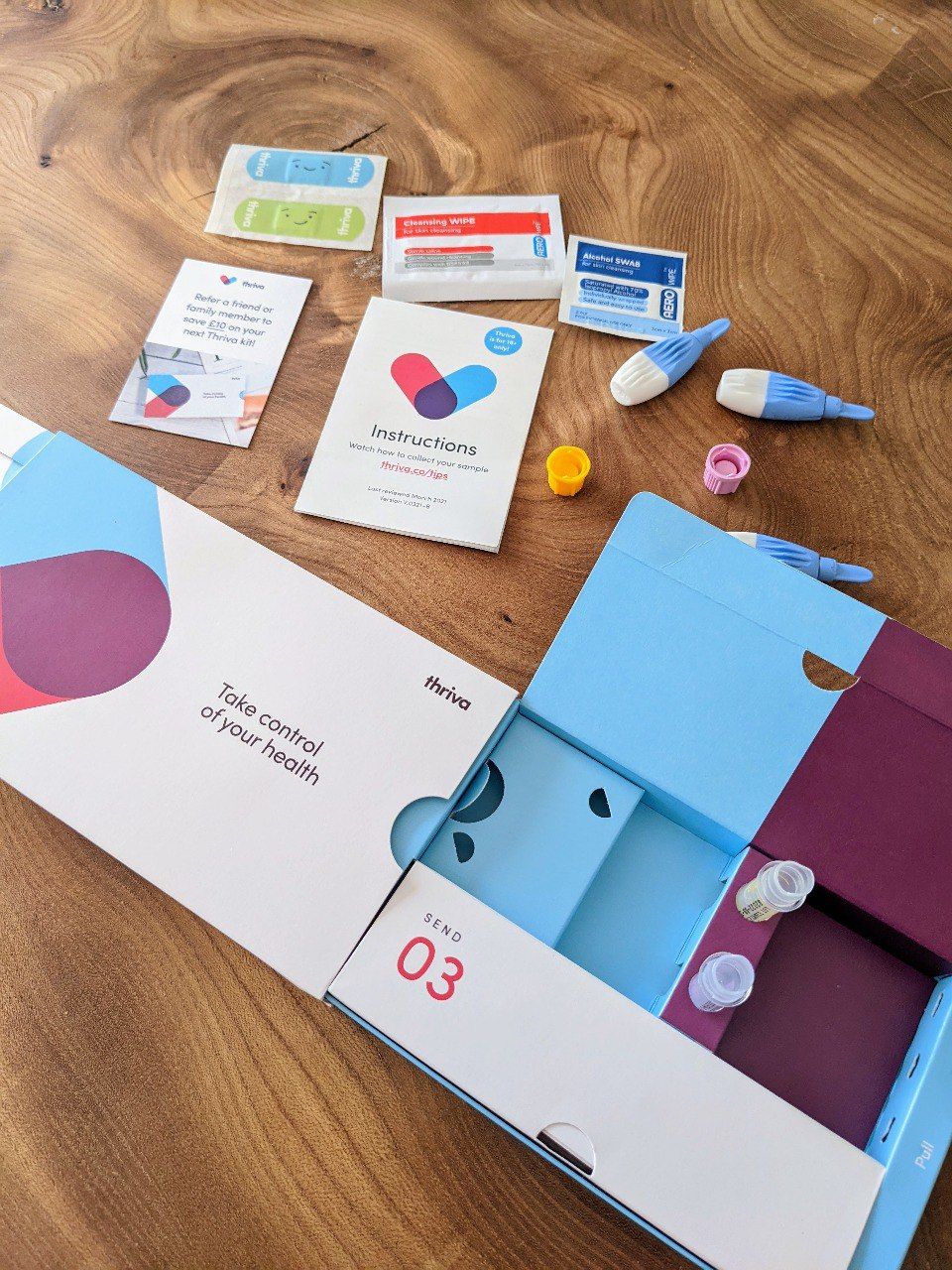
After a week or two you get back your results:
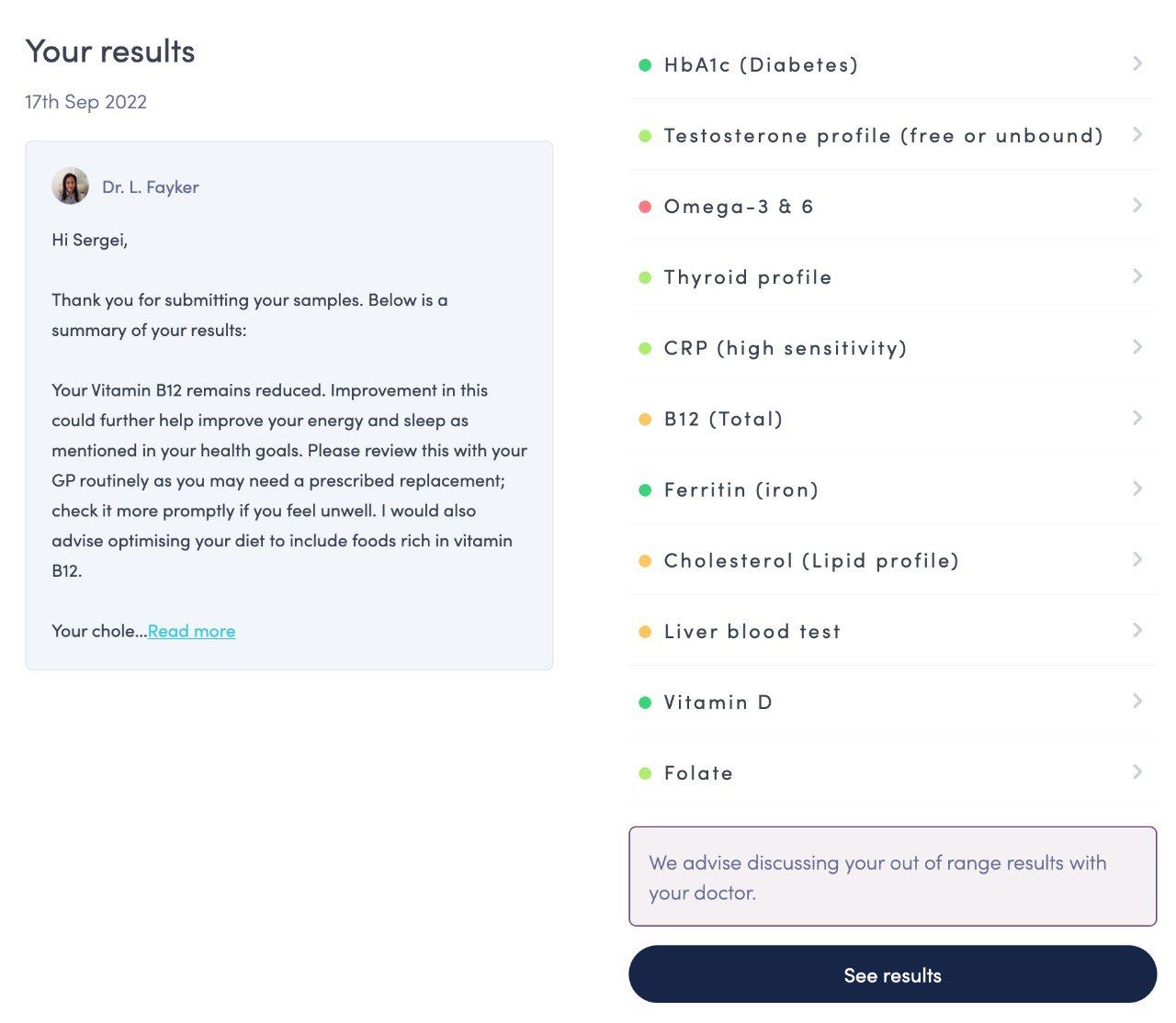
A professional GP looks through your data and gives some tips.
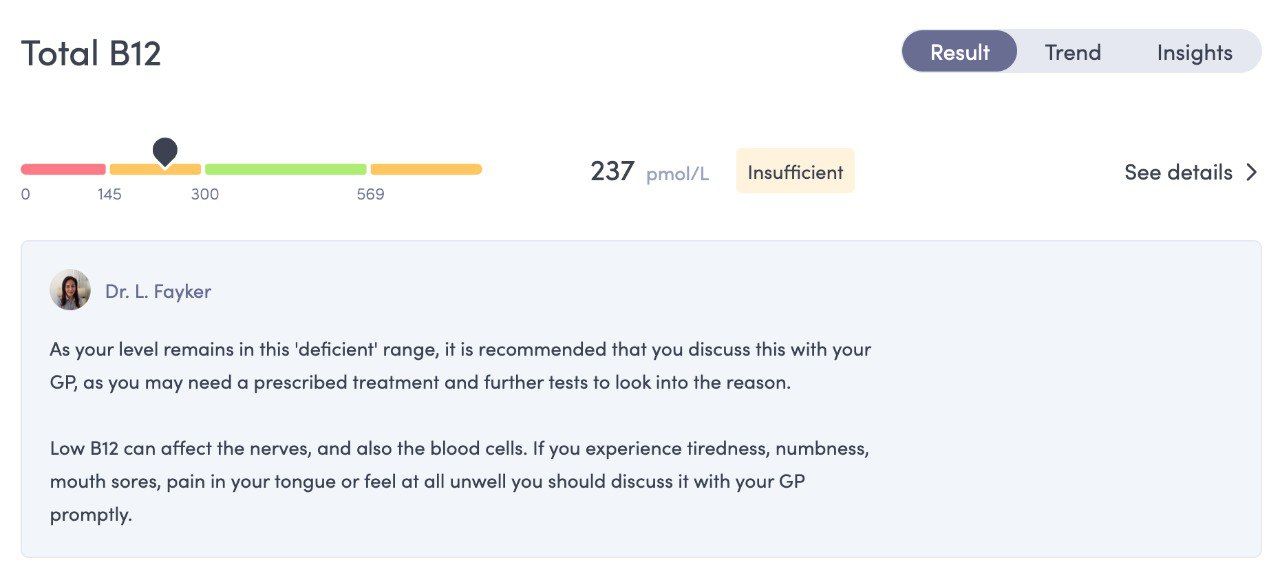
You can see your trends over time. Also you can show results to your regular GP. If I'm in doubt I can book a free NHS video consultation (where I upload my test results) through Babylon GP at Hand app.
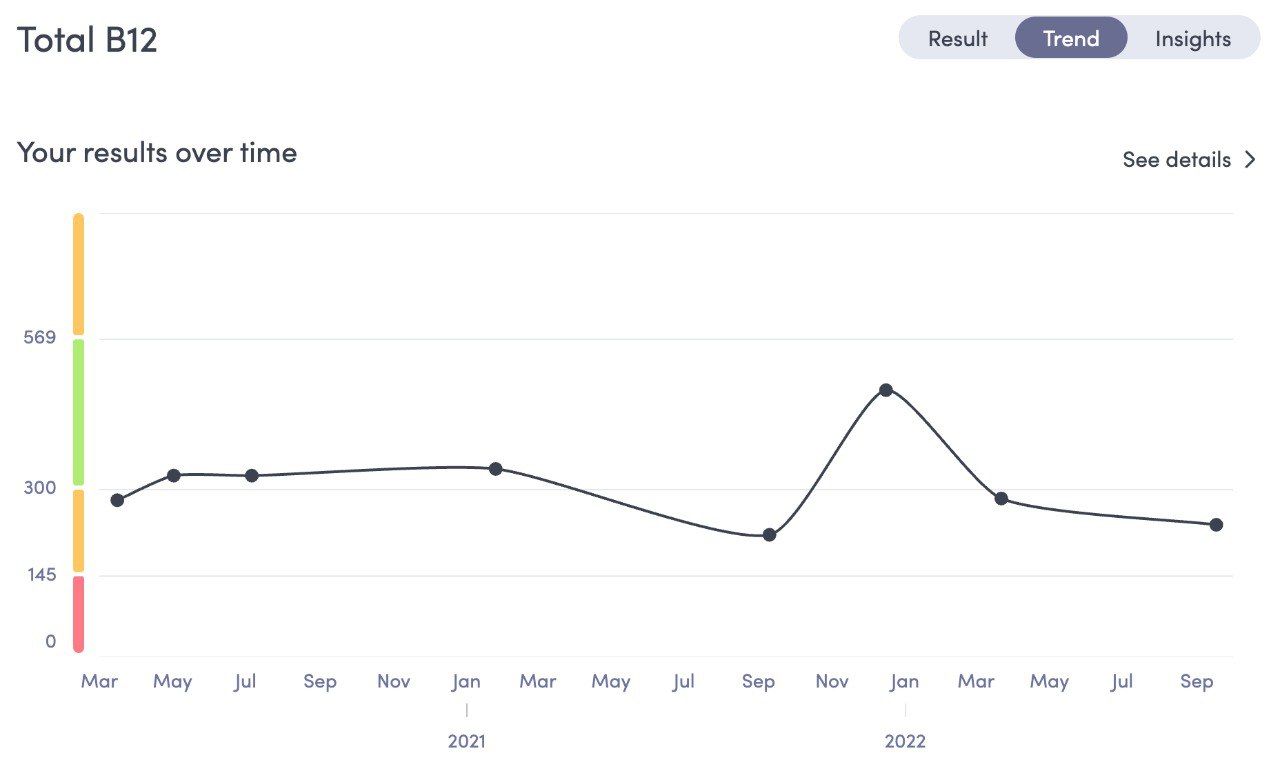
Also they are doing a nice job explaining how a particular biomarker impacts your health. I think this is super cool!
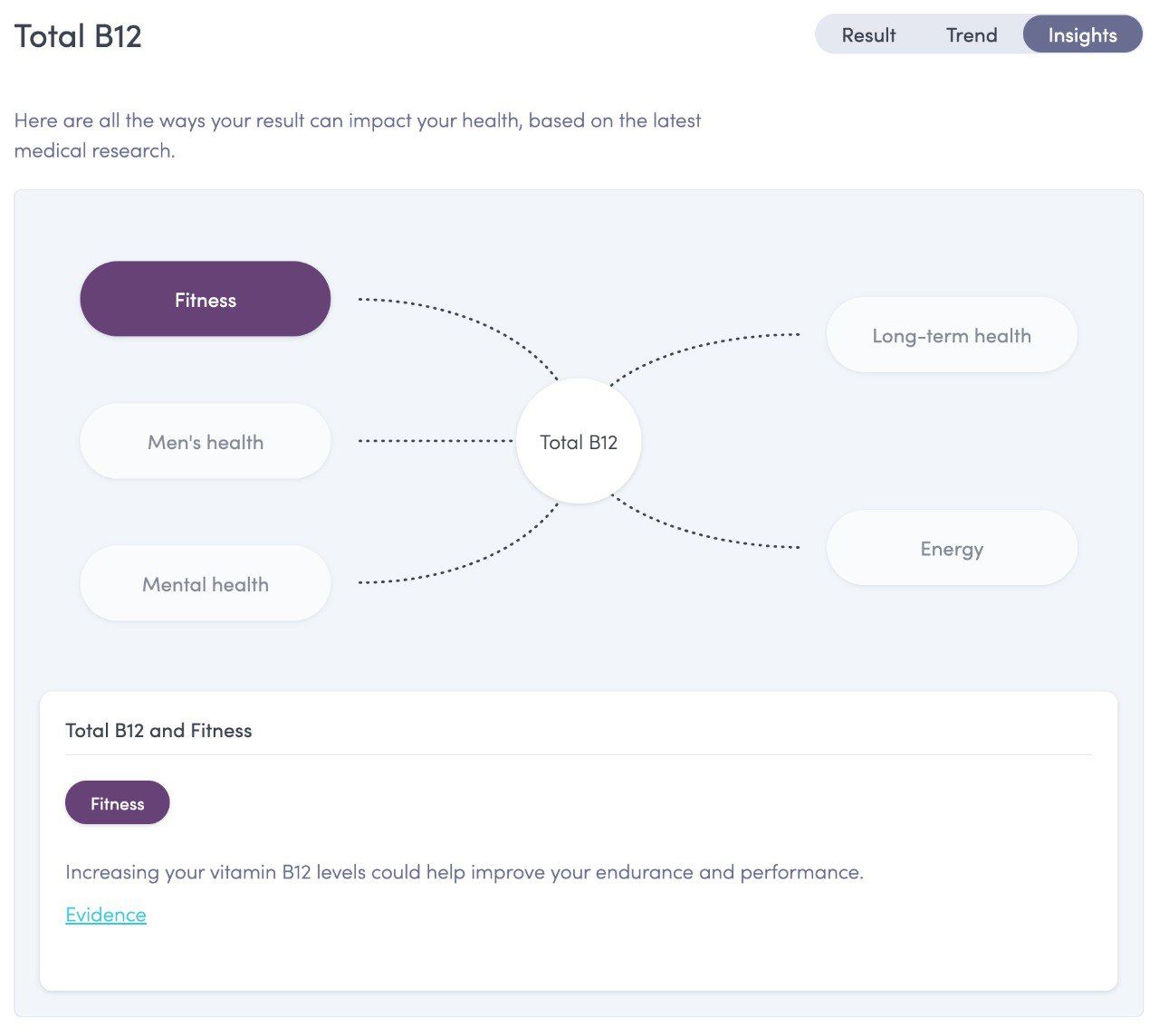
I'm not suggesting you do self-treatment. This is just something you can do on top of what you are already doing, just an extra layer that helps you to dive into the problem areas earlier and e.g. prevent some disease from happening, fix some issue with simply changing your lifestyle.
Also Thriva is not the only option out there, I chose it because it was a good option at the time (it's still an amazing product). So you should definitely consider all the options you have in your country (taking into account budget etc).
I've also seen a cool platform called InsideTracker, but have not tried it yet.
Are you doing something like that already? Which providers do you prefer?
Continuous blood glucose monitoring
Another thing I found super insightful is wearing a CGM (continuous glucose monitor). This is a medical device which people with diabetes are usually wearing. It's usually not as precise as the finger prick test, but still quite nice.
If you're not having diabetes, it could still be beneficial to try wearing it for a month, this way you can learn a lot about your diet. I tried Dexcom G6 (thanks to Peter Attia) and Freestyle Libre 2 (kudos Laura Fullerton).
Usually you can attach it to your shoulder for a couple of weeks (you don't feel it much). Then you can see in real time what your blood glucose is on your phone.
Once you have this thing setup you can try eating different food (also order/timing) and see how it affects your glucose. E.g. after trying that I never ever drink apple juice from a canister (I tried it on an empty stomach) and it was a massive spike. Then my body pancreas had to work hard to produce a lot of insulin to counteract this spike. It dropped it lower than needed and I felt really tired and my brain fogged afterwards.
You can learn how different food affects you, so you can more effectively change your lifestyle. E.g. You can learn that taking apple cider vinegar makes your curve more smooth, so you don't stress your body that much.
A lot of insights could be found in Jessie Inchauspé's profile (also see her Glucose Revolution book).
I personally have a high risk of Type 2 diabetes (according to 23andMe genetic tests, and also looking into my ancestry/relatives). So knowing how to deal with carbs helps me a lot! And I think it's important for everybody.
I've heard many times of another zero-sum misconception. People think just because it's a medical device you shouldn't buy it if you don't really need it (e.g. it's better to keep it for people with diabetes). I think this mindset is wrong. If we have higher demand, we'll get more devices, more job opportunities, there will be significant cost reductions, new breakthroughs, etc.
I lost my Dexcom G6 bluetooth, and to buy a new one I have to pay over £200 which is absolutely insane (it should be £1 max), even though their starter pack costs around £150. I'm so much looking forward to the times when we disrupt this health tech area with cheaper, better quality fantastic devices!
Sleep monitoring
Sleep is incredibly important! This is such a big topic which is worth a separate article. In general I pay a lot of attention to my sleep. E.g. If I have to choose between breakfast and sleep, I prefer sleep. I almost never set up an alarm.
A great starting point would be listening to Matt Walker who written famous Why We Sleep book:
I've been monitoring my sleep with an Oura ring for the past 3 years. I keep all the data. Now thinking about what insights I should try extracting from it (which I didn't notice already).
E.g. I can run an experiment to test how much code I've written depending on my REM sleep haha. What other experiments should I run against the data I have?
Next steps
I have a few ideas on what I want to try monitoring next:
- DUTCH test - shows a comprehensive picture around your hormones, stress, etc.
- Epigenetic clock - you can do a test and see your "age". The idea would be to do this test e.g. every year and see if you aged e.g. by 2 years - then it means your lifestyle is not good, you're ageing faster than needed. If you aged e.g. by half a year, that means you're doing a good job. I've heard this from the amazing Lifespan book by David Sinclair.
- Colorectal cancer home kit test from LetsGetChecked - you can just send you poo and get results (not as precise as colonoscopy, but still much better than nothing).
- Bio Button (cardiac health monitoring).
What else would you recommend?
Vaccination
I didn't explore this bit much, but I think it would be super cool to see what are the low hanging fruits here.
For example, one could do HPV vaccine (a lot of people in developed countries already did it). High risk types of HPV can be found in more than 99% of cervical cancers. This is especially important for women's health. By doing something super simple you can potentially significantly reduce cervical cancer risk.
I know a lot of people create some sort of a vaccination calendar, and "update software when it expires". Which vaccines should I do?
Biohacking
Many things I described in this article often people call biohacking. Personally I don't like this term, I don't consider myself a biohacker. I'm just a regular person with a bit of engineering mindset. I think what I do is simply using common sense and thinking more or less rationally. Something like a health optimisation would be a better term for that.
Conclusion
Please don't hesitate to seek professional help if you need one!
If you don't do much about your health monitoring, you can start small:
- Test a couple of things, make it a part of your routine. See what you learn from this, iterate.
- Find like minded buddies who are doing the same, so you can encourage each other.
- Find good sources of information, professional doctors, share your experience with others!
Please take care of yourself and your loved ones! When healthy you can do a lot more. Please allocate more resources for your health, because it's very important!
Please help me improve my writing 🙏


